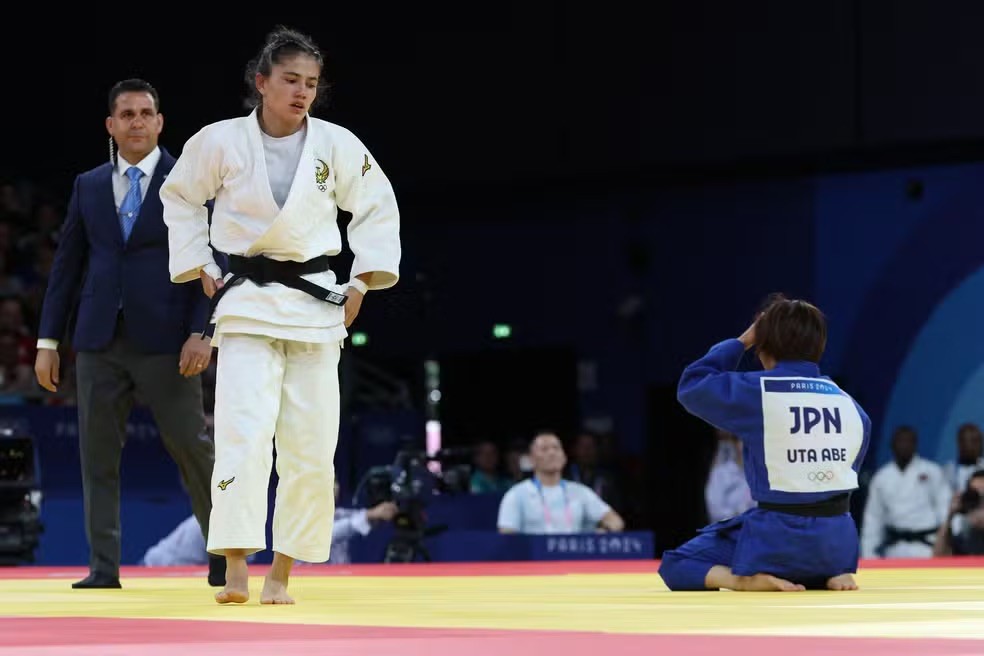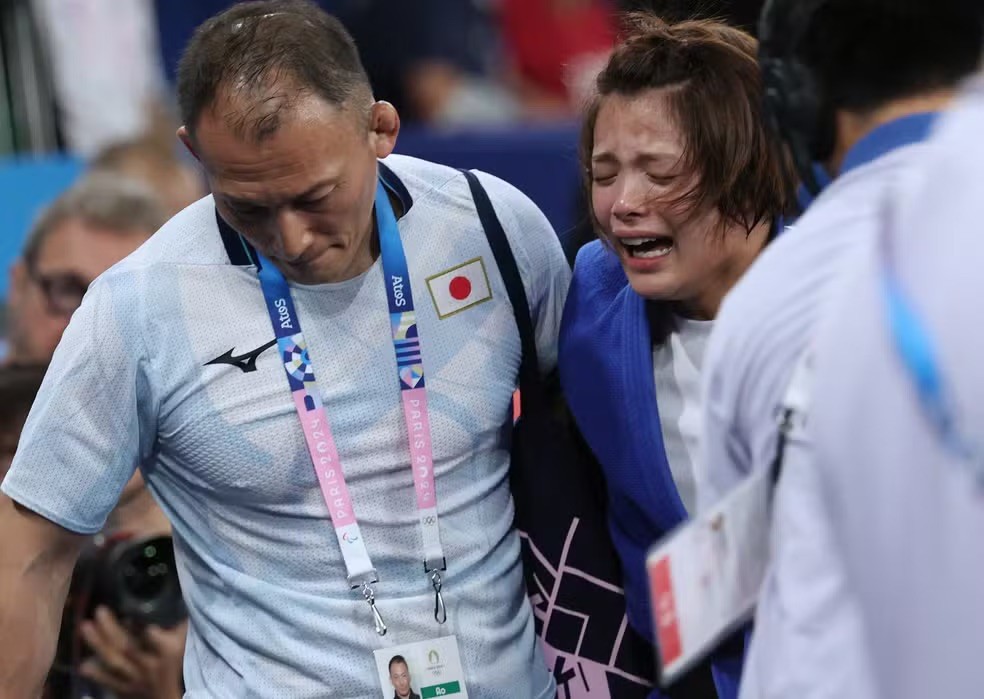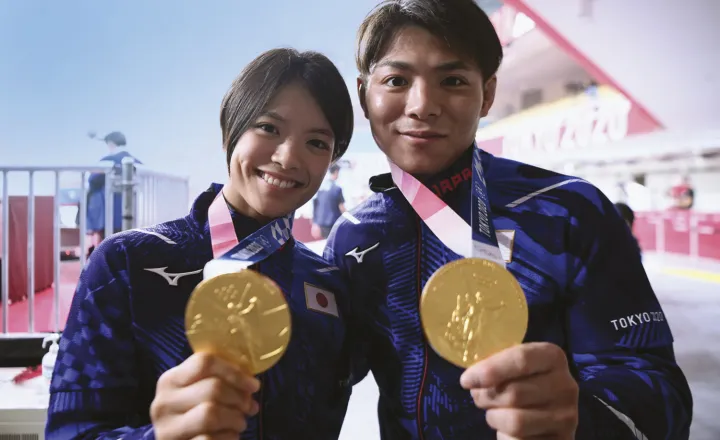On July 28, 2024, during the Paris Olympics, Japanese judoka Abe Uta competed in the women's 52 kg category. Abe Uta, gold medalist at the Tokyo Olympics, carried the hope of repeating her achievement. However, an unexpected defeat in the second round triggered an intense emotional reaction that divided opinions and sparked debate.
Table of Content
The Journey of Abe Uta in Paris
In the first round, Abe Uta won with an ippon, advancing to the second round where she faced the Uzbek judoka Diyora Keldiyorova, the world number one. Despite having scored a waza-ari, Abe Uta was caught off guard by a counterattack from Keldiyorova, losing by ippon. Devastated, Abe Uta broke down in tears, embraced by her coach Yukihide Hirano.

Reactions to the Cry of Abe Uta
Abe Uta's cry provoked a series of reactions, both sympathetic and critical. While many understood her pain and expressed support, others saw her reaction as exaggerated and inappropriate for an athlete of her stature. Below, we explore the main critical arguments.

Reasons for the Criticism of Abe Uta's Choro
1. Child Behavior
Some critics compared Abe Uta's crying to that of a child, considering it disproportionate and inappropriate for a professional athlete. The intensity of her tears, audible throughout the venue, was seen as a sign of emotional immaturity.
2. Incompatible with the Conduct of a Judoka
Judo values discipline and respect, starting and ending with a bow. Abe Uta's inability to compose herself to properly greet her opponent was considered a significant failure in judo etiquette.
3. Lack of Respect for the Opponent
Although Abe Uta shook Keldiyorova's hand after the fight, his reaction was perceived as disrespectful. Keldiyorova, for her part, showed great sportsmanship and respect by holding back her celebrations in light of Abe Uta's emotional defeat.
4. Interference in the Progress of the Competition
Abe Uta's prolonged crying crisis delayed the competition schedule, requiring the intervention of the organizers. This behavior was deemed inappropriate for a high-level athlete, who should avoid disrupting the progression of the event.
5. Disturbance of Other Athletes
Abe Uta's behavior was also criticized for potentially distracting other competitors who were preparing for their own fights. In a highly competitive environment, maintaining concentration is crucial, and her emotional display was seen as an unnecessary distraction.
6. Selfish Attitude
Some spectators interpreted Abe Uta's behavior as selfish, suggesting that she disregarded the impact of her actions on other competitors and the organization of the event.
7. Coaches' Reaction
Abe Uta's coaches were criticized for not acting quickly to calm her down and remove her from the scene, allowing her emotional reaction to be prolonged in public.
Reasons for the Cry of Abe Uta
Abe Uta's defeat was particularly devastating due to her history of success and high expectations. Furthermore, she was pursuing the dream of winning gold alongside her brother, Hifumi Abe, repeating the feat of the Tokyo Olympics. The pressure and weight of these expectations may have significantly contributed to her intense emotional reaction.
Japanese athletes, especially judokas, carry immense pressure to perform well in international competitions due to Japan's strong tradition and success in judo. This sport, which has its roots in Japan, is more than just a physical activity; it is an essential part of national culture and identity. Consequently, Japanese judokas do not compete just for themselves, but also for a legacy and national expectations.
Abe Uta's defeat at the Paris Olympics can be seen as a reflection of the enormous pressure she faced. As a gold medalist at the Tokyo Olympics, there was an expectation that she would repeat her success. Furthermore, Abe Uta was not only competing for a medal but also for the pride of her country and the continuation of her personal and family legacy, as her brother, Hifumi Abe, is also a renowned judoka.
The pressure to maintain national and personal honor can be overwhelming. In the case of Abe Uta, the unexpected defeat in the second round, after being considered one of the favorites, was a severe blow. The intensity of her tears can be seen as an expression of accumulated frustration, disappointment at not meeting expectations, and the pressure of being in the spotlight of an entire nation.
The Culture of Excellence in Japan
In Japan, the pursuit of excellence is deeply rooted in various areas, including sports. Athletes are often trained from a young age to reach the highest level of performance, which involves a rigorous training regime and a mindset of total dedication. Although this pursuit of excellence produces many champions, it also places a huge emotional burden on the athletes.

Wrapping Up
Abe Uta's crying at the Paris Olympics was a moment that sparked empathy and criticism. Her vulnerability brought important discussions to the forefront about the pressure on elite athletes and public expectations. While some saw her tears as a genuine expression of frustration and pain, others criticized her inability to maintain the composure expected of a judoka.
Regardless of opinions, it is undeniable that Abe Uta is an athlete of immense talent and determination. It is hoped that she can recover from this experience and come back even stronger in the upcoming competitions, continuing to inspire both through her achievements and her humanity.
